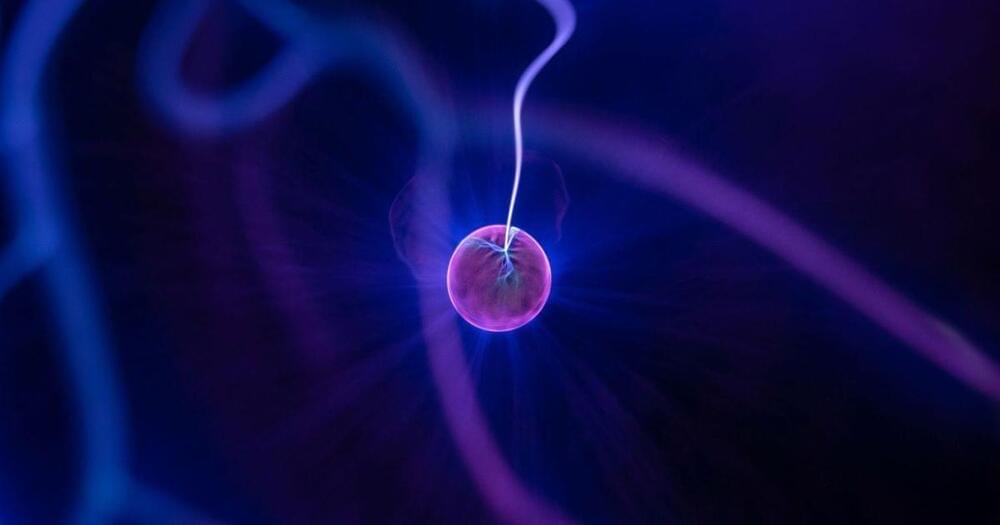Research could help protect satellites and astronauts from the solar wind.
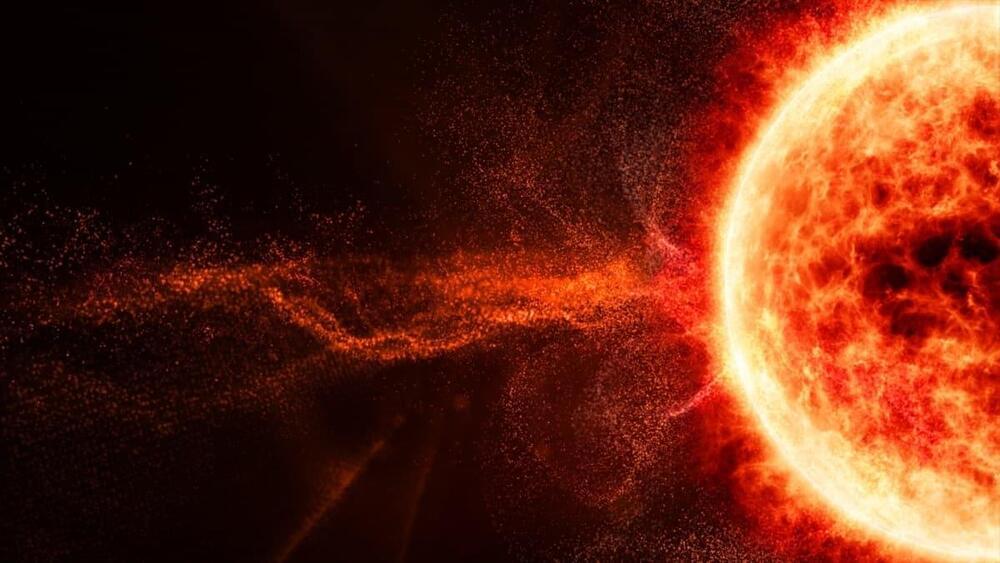

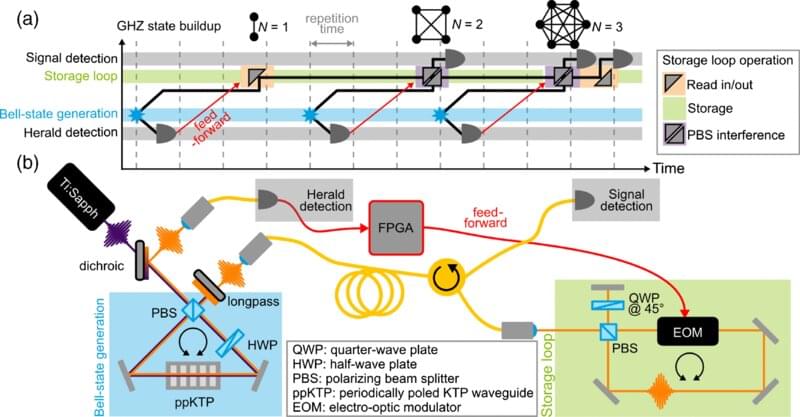
Tiny particles are interconnected despite sometimes being thousands of kilometers apart—Albert Einstein called this “spooky action at a distance.” Something that would be inexplicable by the laws of classical physics is a fundamental part of quantum physics. Entanglement like this can occur between multiple quantum particles, meaning that certain properties of the particles are intimately linked with each other.
Entangled systems containing multiple quantum particles offer significant benefits in implementing quantum algorithms, which have the potential to be used in communications, data security or quantum computing. Researchers from Paderborn University have been working with colleagues from Ulm University to develop the first programmable optical quantum memory. The study was published as an “Editor’s suggestion” in the Physical Review Letters journal.
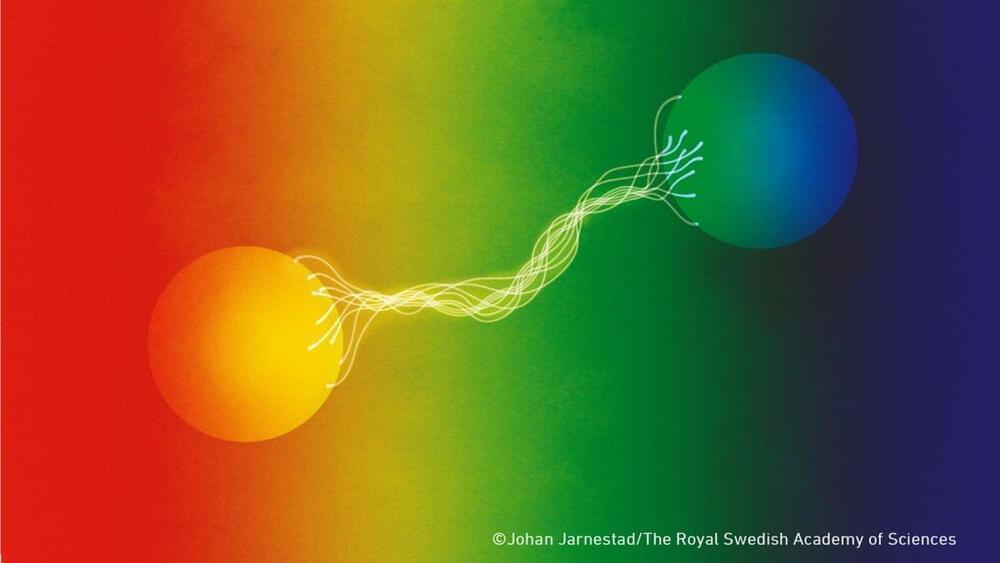
Three scientists who laid the groundwork for the understanding of the odd “entangling” behavior of quantum particles have received the 2022 Nobel Prize in Physics.
French physicist Alain Aspect, Austria’s Anton Zeilinger and American John Clauser were honored for their experiments exploring the nature of entangled quantum particles.
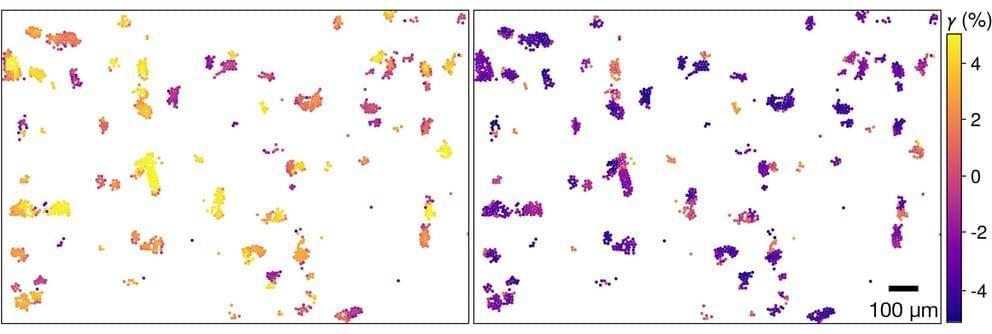
Some solid materials have a memory of how they have previously been stretched out, which impacts how they respond to these kinds of deformations in the future. A new Penn State study lends insight into memory formation in the foams and emulsions common in food products and pharmaceuticals and provides a new method to erase this memory, which could guide how materials are prepared for future use.
“A crease in a piece of paper serves as a memory of being folded or crumpled,” said Nathan Keim, associate research professor of physics at Penn State who led the study. “A lot of other materials form memories when they are deformed, heated up, or cooled down, and you might not know it unless you ask the right questions. Improving our understanding of how to write, read, and erase memories provides new opportunities for diagnostics and programming of materials. We can find out the history of a material by doing some tests or erase a material’s memory and program a new one to prepare it for consumer or industrial use.”
The researchers studied memory in a type of material called disordered solids, which have particles that are often erratically arranged. For example, ice cream is a disordered solid made up of a combination of ice crystals, fat droplets, and air pockets mixed together in a random way. This is in stark contrast to materials with “crystalline structures,” with particles arranged in highly ordered rows and columns. Disordered solids are common in food sciences, consumer products, and pharmaceuticals and include foams like ice cream and emulsions like mayonnaise.
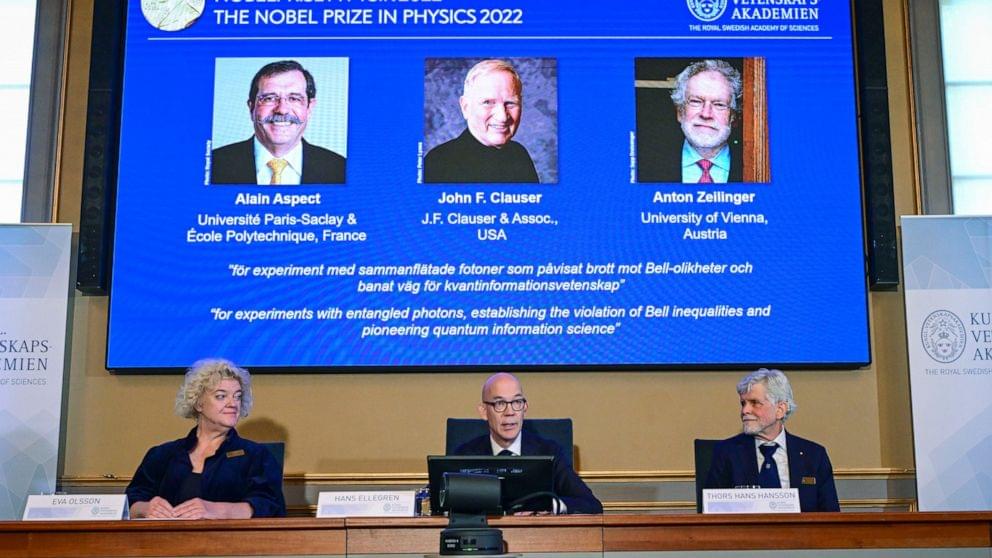
STOCKHOLM — Three scientists jointly won this year’s Nobel Prize in physics Tuesday for proving that tiny particles could retain a connection with each other even when separated, a phenomenon once doubted but now being explored for potential real-world applications such as encrypting information.
Frenchman Alain Aspect, American John F. Clauser and Austrian Anton Zeilinger were cited by the Royal Swedish Academy of Sciences for experiments proving the “totally crazy” field of quantum entanglements to be all too real. They demonstrated that unseen particles, such as photons, can be linked, or “entangled,” with each other even when they are separated by large distances.
It all goes back to a feature of the universe that even baffled Albert Einstein and connects matter and light in a tangled, chaotic way.
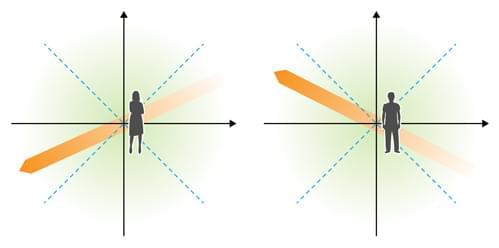
A fluid dynamics theory that violates causality would always generate paradoxical instabilities—a result that could guide the search for a theory for relativistic fluids.
The theory of fluid dynamics has been successful in many areas of fundamental and applied sciences, describing fluids from dilute gases, such as air, to liquids, such as water. For most nonrelativistic fluids, the theory takes the form of the celebrated Navier-Stokes equation. However, fundamental problems arise when extending these equations to relativistic fluids. Such extensions typically imply paradoxes—for instance, thermodynamic states of the systems can appear stable or unstable to observers in different frames of reference. These problems hinder the description of the dynamics of important fluid systems, such as neutron-rich matter in neutron star mergers or the quark-gluon plasma produced in heavy-ion collisions.
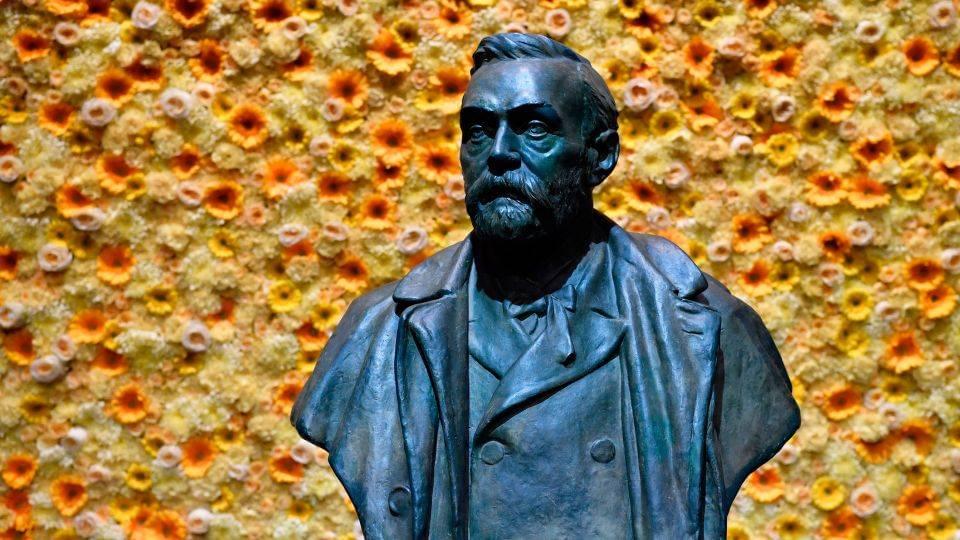

The Nobel Prize in Physics was awarded to Alain Aspect, John F. Clauser and Anton Zeilinger on Tuesday for work that has “laid the foundation for a new era of quantum technology,” the Nobel Committee for Physics said.
The scientists have each conducted “groundbreaking experiments using entangled quantum states, where two particles behave like a single unit even when they are separated,” the committee said in a briefing. Their results, it said, cleared the way for “new technology based upon quantum information.”
The laureates’ research builds on the work of John Stewart Bell, a physicist who strove to address the question of whether particles, having flown too far apart for there to be normal communication between them, can still function in concert.
